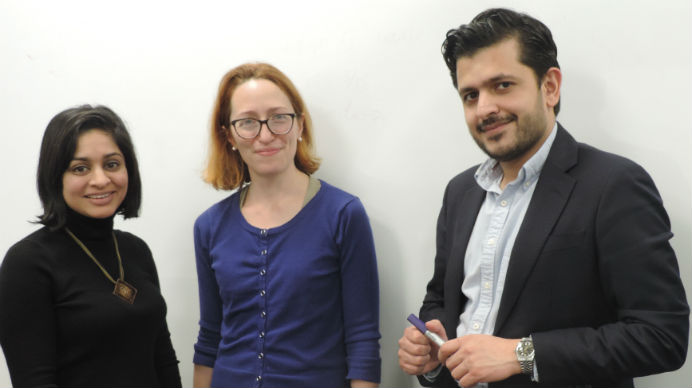
An editorial board at the Imperial College London has recently finalized the creation of a pool of 20 cases for a pilot project to introduce Practicum Script to undergraduate medical education. At the current stage, the project targets the validation of the clinical cases by a panel of referees consisting of experts in Internal Medicine from most participating medical schools. Harvard, Oxford, La Sapienza (Rome), and the Charité (Berlin), among other medical schools, have already joined this innovative project coordinated by the Practicum Foundation - Institute of Applied Research in Health Sciences Education.
Madrid - July 2, 2019. During the upcoming academic year, hundreds of senior medical students in clinical rotations will have the possibility to train clinical reasoning skills using Practicum Script. A continuing concern in medical education is the completion of the undergraduate level without sufficient reflective abilities to interact with real patients, which could affect patient safety. This is why the Practicum Foundation has stepped up. Our simulation-based program will be delivered to medical schools thanks to an international project conducted by the Practicum Foundation and the European Board of Medical Assessors (EBMA). The experience will consist of the simulation of 20 real clinical Internal Medicine cases.
Led by Prof Amir H. Sam, Scientific Director at EBMA and Head of Curriculum & Assessment Development at the ICL, Drs Rebecca Scott and Anjali Amin, specialists in Internal Medicine at the ICL, have designed a pool of 20 cases focused on the diagnosis and treatment of adult diseases. The particularity of this pedagogic approach is the fact that it measures not factual knowledge, but rather, thinking skills. Practicum Script allows users to self-assess their clinical reasoning in real-life situations, boosting their confidence in decision making. This innovative tool will help students increase their critical judgment, build up differential diagnoses, and reinforce their confidence in problem solving.
Practicum Script presents challenges in dilemmatic contexts and embraces the gray scale of the clinical setting, so debate and dissent dominate the tone. In the words of the tool’s general manager, Dr Eduardo Hornos, "It is a collaborative learning network that provides immediate feedback from experts and solid scientific evidence to endorse agreements and discrepancies, introducing the concept of uncertainty into the medical curriculum." The idea is to assess learners in ways that go beyond the memorization of factual knowledge toward testing their higher-order cognitive skills in a simulated clinical context.
Current stage: validation committee
With the editorial stage already completed, the cases are currently under revision by a panel of referees comprised by internists. They will be required to answer the dilemmas and provide rationales for each response. For this purpose, we have recruited experts from Oxford, the Charité (Berlin), and La Sapienza (Rome), among other top European medical schools. Outside the continent, Harvard and the University of Sao Paulo have recently joined the project. In total, we are counting on around twenty medical schools from 10 countries, and the next move will be a compilation of the experts’ jusfifications as part of the feedback for the participants. Also, a literature review of relevant clinical evidence will be performed.
The primary goal is to assess the feasibility of integrating such a training model as a standardized educational resource in undergraduate teaching and assessment. The program enjoys a consolidated background in the continuous professional development field both in Spain and Latin America. Until now, it was available for specialists and residents in Cardiology, Gastroenterology, and Pediatrics. According to the director of the project, Dr Eduardo Pleguezuelos, "The protocol establishes the development of a pool of cases adapted to medical students in their final years, the application of the pedagogical experience in the next academic year, and the obtention of psychometric results by the end of 2020.”
All is going as planned! Stay tuned to know more about this pioneer pilot study.
Our personalized help center enables you to obtain technical support and help for navigating through the site and using the program.